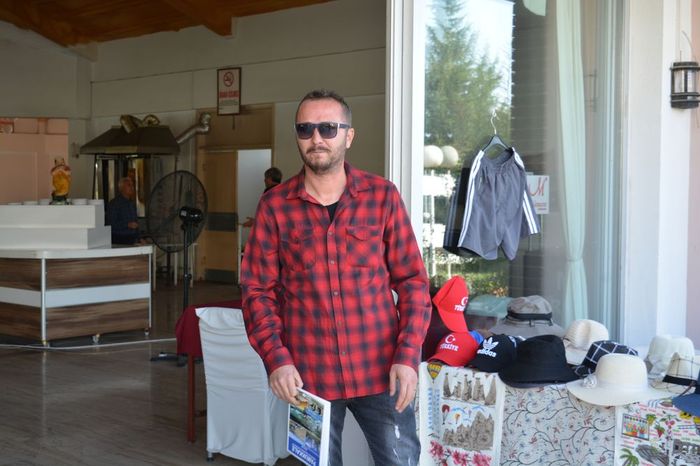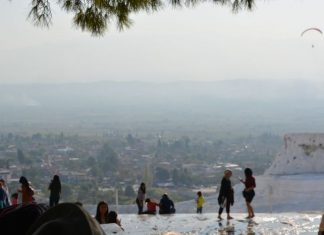Directly the Latins caught sight of them, without waiting even a minute or asking what they wanted, they betook themselves to battle and fighting. A severe battle arose between them in which many fell on either side, and . . . the Emperor’s . . . were wounded, who had attacked him too recklessly. As the imperial troops fought very bravely, the Latins turned their backs. In consequence Godfrey shortly afterwards yielded to the Emperor’s wish. He went to the Emperor and swore the oath which was required of him, namely, that whatever towns, countries or forts he managed to take which had formerly belonged to the Roman Empire, he would deliver up to the Governor expressly sent by the Emperor for this purpose.
After he had taken this oath, and received a large sum of money, he was invited to the Emperor’s hearth and table, and feasted luxuriously, and afterwards crossed the straits and encamped near Pelecanus. Thereupon the Emperor gave orders that abundant supplies of food should be conveyed to them.
Raoul arrived with fifteen thousand horse
X After this man the Count called Raoul arrived with fifteen thousand horse and foot and bivouacked by the Propontis near the so-called monastery of the Patriarch with the Counts under him, and the rest he quartered on the shore right up to Sosthenium. He, with the same intention as Godfrey, put off crossing as he, too, was awaiting the arrival of the others who were coming after him, but the Emperor foreseeing what might happen, dreaded their advent, and tried to hurry on Raoul’s crossing by every possible means.
So he sent and had Opus fetched (a man of noble mind and not inferior to anyone in military experience), and when he arrived he dispatched him with some other brave men overland to Raoul with orders to compel the latter to cross the straits. But when he found that Raoul would certainly not obey the Emperor’s order, but rather spoke impudently and most insolently of the Emperor, he drew up his lines for battle, thinking perhaps to terrify the barbarian, and in this way persuade him to sail across to the other side.
But Raoul drew up the Franks he had with him more quickly than can be told, and rejoiced ‘like a lion that has lighted upon a huge carcass,’ and straightway commenced a serious battle with Opus. Now Pegasius came to the place by sea in order to transport the Franks, and when he saw the battle being fought on land, and the Franks attacking the Roman army very boldly, he disembarked, and himself attacked the Franks from the rear. In this battle many were killed, but a far greater number wounded, and consequently the survivors asked to be put across the sea.
Read More about Second Battle with Heresy part 23








